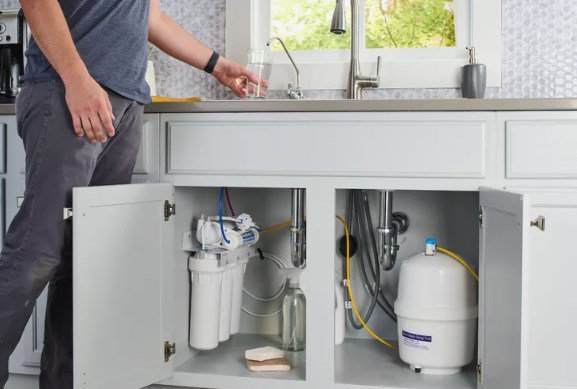
Do under sink RO system waster of water
Reverse osmosis (RO) systems have become increasingly popular in recent years, as they are an effective way to remove impurities from drinking water. However, one concern that many people have about under sink RO systems is whether or not they waste water. In this article, we will explore this topic and examine whether or not under sink RO systems are actually wasteful.
First, it's important to understand how an under sink RO system works. Essentially, these systems use a membrane to filter out impurities from water. The membrane allows water molecules to pass through, while trapping impurities such as minerals, chemicals, and bacteria. The purified water is then collected in a storage tank, while the impurities are flushed down the drain.
The flushing process is what leads to the concern that under sink RO systems are wasteful. Essentially, for every gallon of purified water produced, several gallons of water are flushed down the drain. This can seem like a significant waste, particularly in areas where water is scarce.
However, it's important to note that this flushing process is necessary to ensure that the membrane remains clean and effective. If the impurities were allowed to accumulate on the membrane, it would become less efficient and eventually fail. Therefore, the flushing process is an important aspect of maintaining the system and ensuring that it continues to produce clean, safe drinking water.
So, while it's true that under sink RO systems do waste water, it's important to understand that this is a necessary part of the process. In fact, most under sink RO systems are designed to minimize waste as much as possible. Many newer models use advanced technologies such as permeate pumps and auto shut-off valves to reduce the amount of water that is flushed down the drain.
Permeate pumps work by increasing the pressure of the water going into the membrane, which can help to reduce the amount of water that is wasted. Auto shut-off valves, on the other hand, monitor the amount of water in the storage tank and shut off the system when the tank is full. This helps to prevent overfilling and ensures that water is not wasted unnecessarily.
It's also worth noting that under sink RO systems are actually more efficient than many other types of water filtration systems. For example, activated carbon filters, which are commonly used in pitcher-style filters and refrigerator filters, are not as effective at removing impurities from water. This means that more water may need to be consumed to achieve the same level of hydration, which can ultimately lead to more water waste.
In addition, under sink RO systems can actually help to conserve water in other ways. For example, by removing impurities from tap water, they can reduce the need for bottled water, which requires significant amounts of water to produce. They can also help to reduce the amount of water that is wasted due to leaks or other issues with plumbing.
Overall, while under-sink RO systems do wastewater, this is a necessary part of the process. Take this product as an example. The amount of water that is wasted can be minimized through the use of advanced technologies such as permeate pumps and auto shut-off valves. And while the flushing process may seem like a significant waste, it's important to remember that under-sink RO systems are actually more efficient than many other types of water filtration systems.

